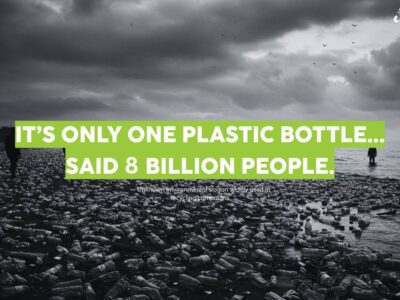Goodbye, Cleveland!
Newspaper Collapse Threatens The Environment: Universities Need To Fill The Gap
 In 1970, Cleveland’s Cuyahoga River famously caught fire. This past week, we have seen an even worse environmental disaster for the city:
In 1970, Cleveland’s Cuyahoga River famously caught fire. This past week, we have seen an even worse environmental disaster for the city:
The Plain Dealer on Monday laid off 14 newsroom employees as part of a staff reduction first announced in December. The 14, most of them reporters and all members of Local 1 of the News Guild of the Communication Workers of America, account for about a third of the unionized news-gathering staff…
The Guild said in a statement that The Plain Dealer had a unionized staff of 340 journalists two decades ago. That soon will be reduced to 33.
 From 340 to 33. The Plain Dealer is not alone: as this chart shows, newspaper advertising revenue has collapsed over the past two decades. But it isn’t simply a matter of the internet: poor decisions by owners, and the growth of vulture capital has mightily contributed as well. Sam Zell bought the Los Angeles Times by borrowing against its employees pension fund, then laid off dozens and came close to destroying one of my home city’s most important institutions. Web sites like “Newspaper Death Watch” abound.
From 340 to 33. The Plain Dealer is not alone: as this chart shows, newspaper advertising revenue has collapsed over the past two decades. But it isn’t simply a matter of the internet: poor decisions by owners, and the growth of vulture capital has mightily contributed as well. Sam Zell bought the Los Angeles Times by borrowing against its employees pension fund, then laid off dozens and came close to destroying one of my home city’s most important institutions. Web sites like “Newspaper Death Watch” abound.
It should be relatively clear why this is an environmental issue. Many of the most crucial environmental issues are local in nature: land use, environmental justice, open space, and transportation all hit people in their local communities. These are the issues that also build political support for environmental causes: people cannot see “climate change” (which indeed is part of the problem) but they can certainly see the environmental degradation of their neighborhoods. What happens, though, if no one is there to report it, give it context, inform people that others share the same concerns, put pressure on local office holders? As I mentioned last week, Zuzana Caputova, Slovakia’s new President, built her political career on the quintessentially local issue of a toxic waste dump threatening neighborhood children.
I have argued for years that universities need to fill this gap. The job of a university is to increase the stock of human knowledge and understanding: journalists play a crucial role in this function. And take a look at any good law review article: it relies heavily for background data on local newspaper reports. As I wrote six years ago:
In many ways, serious journalism and serious scholarship are two sides of the same coin. They both exist to produce knowledge. To say this in an academic audience is akin to heresy: if a stuck-up academic wants to insult someone, he or she will call their efforts “journalism.” And of course there are differences. Academic scholarship will try to put information in a theoretical framework that can explain and predict events and advance new hypotheses. Journalism generally doesn’t do that; it is generally more at home in the relentless acquisition of facts (when it is doing its job, of course).
But one can easily over-emphasize these differences, and most academics do, because of the need to justify our position and professional prestige. Many scholarly articles — particularly from law professors — rely heavily on journalistic accounts of the world. To the extent that we are assembling our own facts, we really are doing journalism — and there is nothing whatever wrong with that. Think of scholars such as Sudhir Venkatesh, Elijah Anderson, or Theda Skocpol as outstanding instances. Conversely, the best journalism takes a theoretically informed approach and then tries to identify broader patterns and causal connections that mere fact-gathering will not reveal. Nicholas Lemann, Elizabeth Kolbert, and James Fallows come to mind as outstanding examples.
Journalism embedded within a university not only dovetails nicely with the scholarly mission but also has some promise for creating better journalism and better scholarship. By working together, academics can generate a set of good questions that need to be answered in order to understand social reality, and journalists can provide the sort of rich factual basis to determine whether these theories have purchase as well as generating new theoretical questions. Nowhere would this work better in my view than in the environmental field, which often involves complex scientific questions but meta-question about what the science actually means.
If anything, the problem has become more serious since then. Not only has the collapse of journalism accelerated, but the Trump Administration’s war on the environment has made the need more pressing, as its campaign to undermine enforcement means that the public needs to see how this impacts them on the ground.
Assuming there are historians of the future, I wonder how they will look at us, and how they will judge our failure to respond to this very pressing challenge of our time.

Reader Comments
3 Replies to “Goodbye, Cleveland!”
Comments are closed.







Could not agree more as an environmental public interest lawyer working in Ohio. One of the reporters who left, John Funk, was the preeminent journalist covering energy issues at a general circulation newspaper in the state. Remains to be seen whether anyone will fill the gap — at a time when the Ohio legislature is about to start seriously considering a bailout of nuclear plants that will cost hundreds of millions of dollars annually at the expense of renewables and energy efficiency.
Thank you for this, Madeline! I will follow up with a post.
Here it is: https://legal-planet.org/2019/04/11/cleveland-city-of-light-city-of-magic/